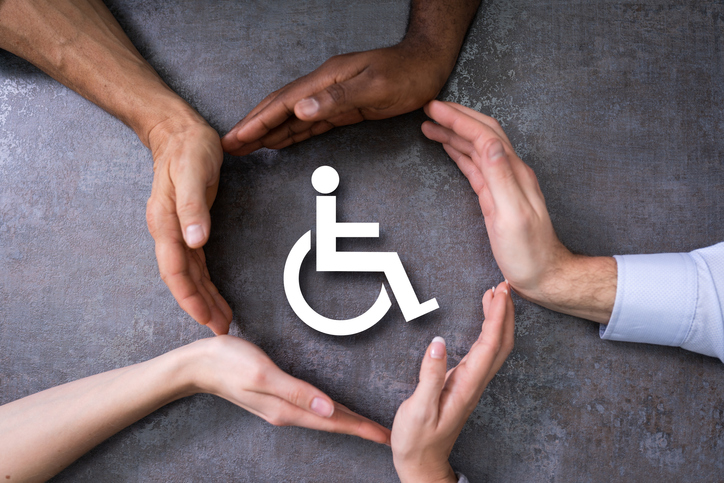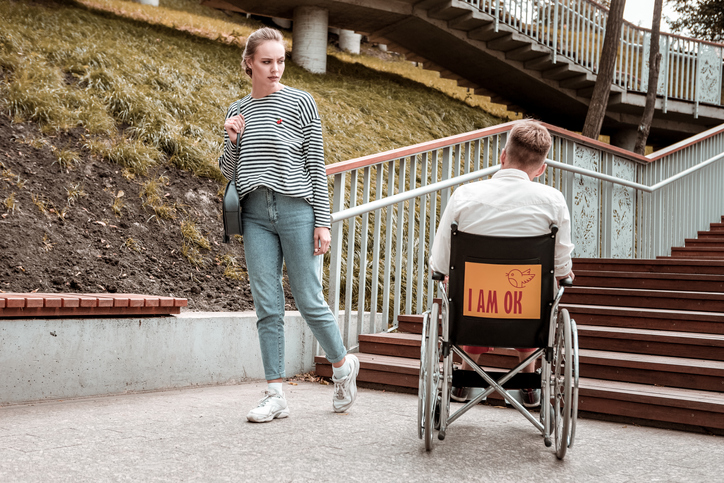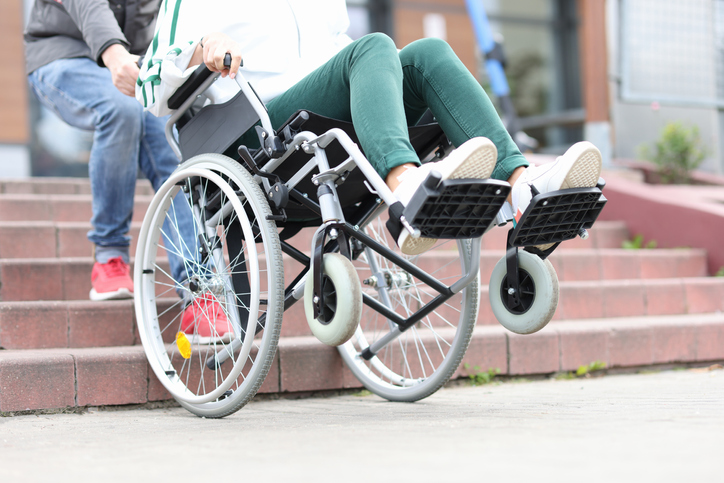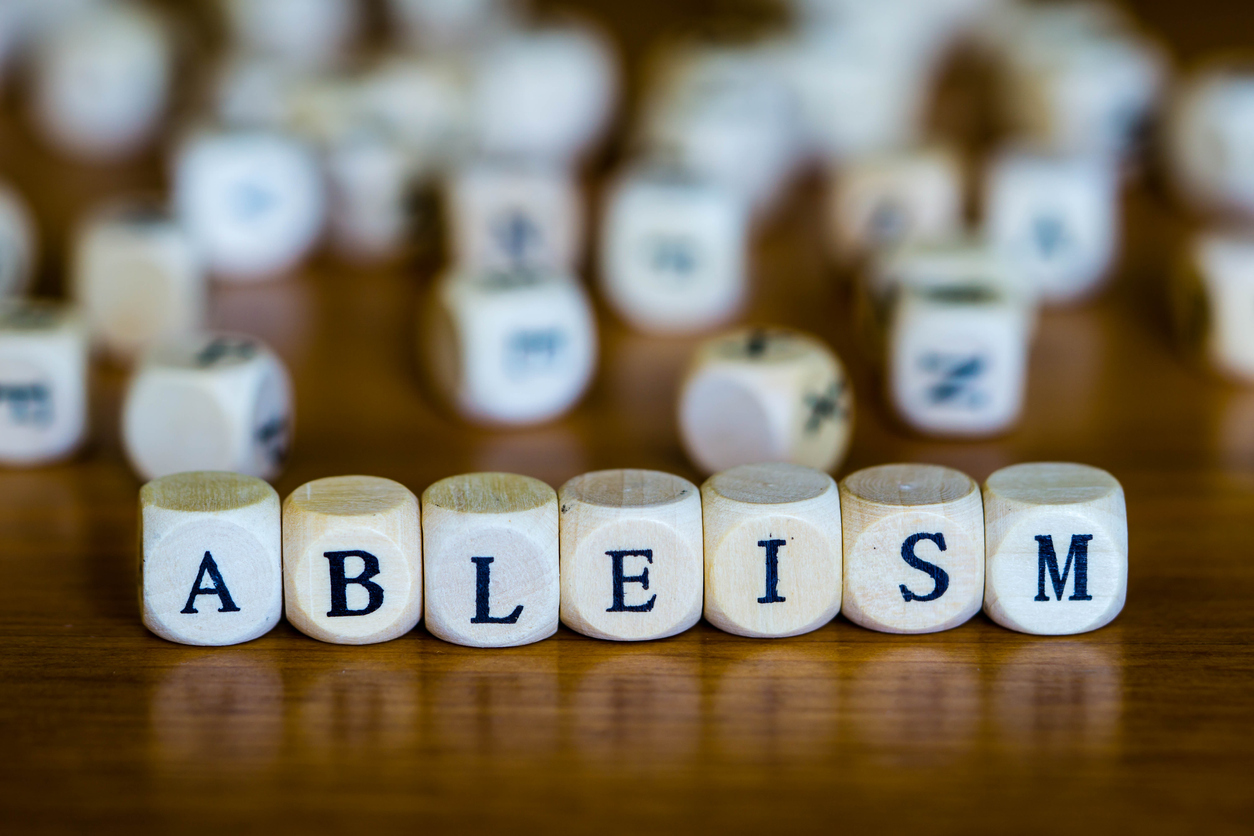Living with Chronic Pain
How to Avoid Ableism While Talking About Disability
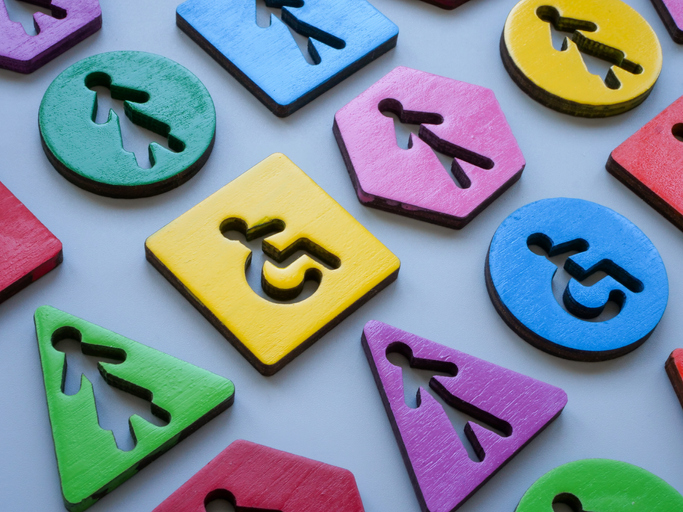
What is ableism?
Ableism is a set of beliefs that favors able-bodied individuals and discriminates against disabled individuals. Ableists may treat those with chronic pain or other disabilities differently, and often negatively.
Ableism may also make an individual with a disability feel that they need to hide their condition to make others feel comfortable. However, attempts to appear able-bodied can negatively impact physical and mental health. The following tips can help with avoiding ableism while discussing a disability.
Avoid infantilization
Disabled people may be infantilized, or treated as babies or children. Individuals may speak to a disabled person’s aide, parent, friend, interpreter, or spouse instead of addressing them. People may slow their speech or use “simple” words or phrases in a high-pitched voice. Some might talk about a disabled person who is sitting right next to them as if they are invisible. Others may try to speak for a disabled person without knowing what the person actually wants. Treating disabled adults as children deprives them of their independence.
Respect diversity
Frequently, when someone meets a disabled person, they apply what they know about that person to all other interactions with disabled people. This is harmful because it fails to recognize the diversity in the disabled community. It is harmful to think of a disability as a “one size fits all,” because this ignores the personal experiences.
Don’t use disabled people as inspiration
Videos and stories are easily accessible concerning great feats of disabled individuals. This perpetuates the idea that a disabled person living their life and doing the same things as non-disabled people should be inspiring. Comments about how other people “have no excuse” for not having the same accomplishments diminishes the diversity of experiences that disabled people have. If the comment would not be normal to say if the person were not disabled, it is best left unsaid.
Don’t treat it like a problem
Disability is an identity and a culture. Far too often, it is treated as a problem. In many cases, treatment is centered around making a person’s symptoms palatable to others rather than themselves. Cures are pushed when the individual may not want one.
The medical model of disability insists that disabled people must strive to be normal in order to be whole. The social model of disability suggests that the issue is not with the disability, but rather with the structure of society. From the perspective of the medical model, someone might say, “She cannot get into the building because of her wheelchair.” From the perspective of the social model, the sentence would change to “She cannot get into the building because there is no ramp.”
Evaluate language
Many ableist terms have become normalized in today’s culture. For example, the phrase, “she’s so OCD,” may not be noticed by someone who doesn’t have an obsessive-compulsive disorder. It is important to think critically about the words used to describe people. Words have meaning and can negatively impact others when used improperly.
Actively listen
When a disabled person mentions that something is harmful or offensive, stop and listen. The conversation should be centered around the disabled individual, not the person who offended them. The other party should try to understand what was offensive about their words or actions. A person can then apologize and use active listening to repeat, in their own words, what they heard that the problem was. This ensures that both parties are on the same page.
Ask questions
Disabled people are not a free resource to educate others. However, when a disabled person is willing and able to answer questions, asking them directly is always best. A person should try to do as much research on their own as possible. There are several groups on various social media platforms designed for individuals to directly ask disabled people questions about their experiences or perspectives.
Additional sources: NPR, Stanford University, and Verywell Mind



